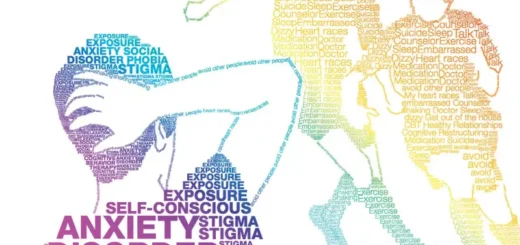Innovative Support Group Techniques for Social Phobia in NZ
In New Zealand, innovative support groups are redefining the approach to managing social phobia, a condition that affects many individuals across the nation. These groups employ unique techniques that emphasize community connection and personal storytelling, fostering an environment where participants feel understood and validated. By focusing on real-life experiences, they aim to dismantle the stigma surrounding social phobia and encourage open discussions about its challenges.
One notable resource is the insights shared in case studies from New Zealand, which highlight various coping strategies and success stories. These narratives not only offer hope but also serve as practical examples for those grappling with social phobia_1. Through such innovative approaches, New Zealand’s support groups are making strides in enhancing the quality of life for individuals facing this often debilitating condition.
Understanding Social Phobia in New Zealand
Social phobia, often referred to as social anxiety disorder, is a common yet often misunderstood condition affecting many individuals in New Zealand. It manifests as an overwhelming fear of social situations, leading to avoidance behaviors that can severely impact daily life. Understanding the nuances of social phobia is crucial for developing effective support strategies. In New Zealand, support groups have emerged as vital resources for those struggling with this condition.
One of the unique aspects of New Zealand’s approach to managing social phobia is the incorporation of localized cultural elements. This involves recognizing the importance of community and connection, which are deeply rooted in Māori culture. Many support groups integrate traditional Māori practices, such as whakawhanaungatanga (building relationships) and manaakitanga (hospitality), to create a welcoming environment that fosters open communication and support.
For more information on social phobia and available resources, visit Social Phobia Support New Zealand.
Peer-Led Support Groups: A Community-Centric Approach
Peer-led support groups have gained traction in New Zealand as an innovative method for managing social phobia. These groups are typically facilitated by individuals who have experienced social anxiety themselves, allowing for a shared understanding and empathy that professional therapists may not always provide. The peer-led model encourages participants to share their experiences, challenges, and coping strategies in a safe and supportive environment.
In New Zealand, many peer-led groups incorporate activities that promote social interaction, such as group outings, workshops, and skill-building exercises. This hands-on approach helps participants gradually confront their fears in a controlled setting, making social interactions less daunting. For instance, a support group might organize a casual coffee meet-up, where members can practice conversation skills in a low-pressure environment.
The effectiveness of peer-led support groups in New Zealand highlights the value of community involvement in mental health support. Participants often report feeling a sense of belonging and decreased isolation as they connect with others facing similar challenges. To learn more about these peer-led initiatives, check out Social Phobia Support New Zealand.
Incorporating Mindfulness Techniques
Mindfulness techniques have become increasingly popular in managing social phobia, and many support groups in New Zealand are embracing these practices. Mindfulness involves being present in the moment and observing thoughts and feelings without judgment, which can be particularly beneficial for individuals experiencing anxiety in social situations.
Support groups often introduce mindfulness exercises such as guided meditation, deep-breathing techniques, and grounding exercises. These activities can help participants develop greater awareness of their anxiety triggers while learning to respond calmly rather than reactively. For example, a group might start each session with a short mindfulness exercise to set a positive tone and promote relaxation among members.
Incorporating mindfulness into support group meetings not only aids in managing symptoms but also fosters a sense of community as members practice these techniques together. To explore more about mindfulness and its application in managing social phobia, visit Social Phobia Support New Zealand.
Utilizing Technology for Support
In the digital age, technology plays a significant role in providing support for individuals with social phobia. Many support groups in New Zealand have adapted to include online platforms, allowing members to connect and share their experiences from the comfort of their own homes. This is particularly beneficial for those who may feel anxious about attending in-person meetings.
Online forums, video calls, and social media groups offer a flexible solution for individuals seeking support. These technologies enable participants to engage with a wider community, access resources, and attend virtual workshops and webinars focused on managing social phobia. For instance, a New Zealand support group might host a series of online seminars featuring mental health professionals discussing effective coping strategies.
The use of technology not only makes support more accessible but also reduces the stigma associated with seeking help for social phobia. To find out more about how technology is being utilized in support groups, check out Social Phobia Support New Zealand.
Creative Expression as a Therapeutic Tool
Creative expression is being recognized as a powerful therapeutic tool in managing social phobia. Support groups in New Zealand are incorporating art, music, and drama therapies into their programs, allowing participants to express themselves in non-verbal ways. This approach can be particularly helpful for those who struggle to articulate their feelings verbally due to anxiety.
Art therapy sessions may involve painting or drawing as a means of exploring emotions and experiences related to social anxiety. Similarly, music therapy can provide a soothing outlet for expressing feelings and connecting with others. Drama therapy encourages participants to engage in role-play, helping them to practice social interactions in a safe and structured environment.
These creative approaches not only promote emotional expression but also build confidence and social skills as participants engage with one another through shared activities. For more insights into the role of creative expression in managing social phobia, visit Social Phobia Support New Zealand.
Integrating Physical Activity into Support Programs
Physical activity is another innovative approach being adopted by support groups in New Zealand to help individuals manage social phobia. Engaging in regular exercise has been shown to reduce anxiety levels and improve overall mental health. Many support groups are incorporating physical activities such as yoga, hiking, or team sports into their programs.
Participating in group exercises not only promotes physical well-being but also fosters social interaction in a less intimidating context. For instance, a walking group can provide an opportunity for members to engage in conversation while enjoying the outdoors, easing the pressure often associated with social situations. This combination of physical activity and social engagement helps to build confidence and strengthen community ties.
By integrating physical activity into support group offerings, participants can experience the dual benefits of improved mental health and enhanced social skills. For more information on the role of physical activity in managing social phobia, check out Social Phobia Support New Zealand.
Building a Holistic Support Network
Creating a holistic support network is essential for effectively managing social phobia. Support groups in New Zealand are increasingly collaborating with mental health professionals, community organizations, and educational institutions to provide comprehensive resources for individuals facing social anxiety. This integrated approach ensures that participants have access to a wide range of support services.
For instance, a support group may partner with a local therapist to offer workshops on coping strategies, while also connecting members to community resources such as employment services and educational programs. By building a network that addresses various aspects of life impacted by social phobia, participants are better equipped to navigate challenges and find pathways to recovery.
This holistic approach underscores the importance of community in managing mental health. To learn more about building a supportive network for managing social phobia, visit Social Phobia Support New Zealand.
FAQs
What is social phobia and how does it affect individuals?
Social phobia, also known as social anxiety disorder, is characterized by an intense fear of social situations where individuals may be judged or scrutinized by others. This condition can lead to avoidance of social interactions, impacting personal relationships and overall quality of life.
What innovative techniques are being used in New Zealand support groups for social phobia?
Support groups in New Zealand employ various innovative techniques, such as experiential therapy, mindfulness practices, and peer-led discussions, to help individuals confront their fears and build confidence in social settings.
How do these unique approaches differ from traditional therapy methods?
Unlike traditional therapy, which may focus heavily on cognitive-behavioral techniques, New Zealand support groups emphasize community engagement and shared experiences, allowing participants to learn from one another in a supportive environment.
Can participation in support groups significantly improve symptoms of social phobia?
Yes, many individuals report significant improvements in their social anxiety symptoms after participating in support groups. The supportive atmosphere and shared experiences can foster a sense of belonging and reduce feelings of isolation.
What role does peer support play in managing social phobia?
Peer support plays a crucial role by providing a safe space for individuals to share their experiences and coping strategies. This mutual understanding can help reduce stigma and encourage openness about the challenges associated with social phobia.
Are there any specific success stories from New Zealand support groups?
Yes, there are numerous success stories where individuals have overcome their fears and improved their social skills through participation in these innovative support groups, often leading to enhanced personal and professional relationships.
How can someone join a support group for social phobia in New Zealand?
Individuals interested in joining a support group can find local resources through mental health organizations, community centers, or online platforms that connect members with appropriate support services tailored to managing social phobia.
References
- New Zealand Social Phobia Support Group – This organization offers resources, support, and information for individuals dealing with social phobia in New Zealand.
- What’s on the Edge? Innovative Approaches to Mental Health Support – A blog post discussing various innovative mental health support strategies, including those employed in New Zealand.
- Mental Health Foundation of New Zealand – Research and Evaluation – This foundation conducts research on mental health initiatives, including unique support group techniques for social anxiety.
- New Zealand Ministry of Health – Mental Health Services – Offers insights into government-backed mental health initiatives and innovative approaches for managing social anxiety.
- The Lowdown – A mental health service that provides support and resources for young people in New Zealand, including innovative techniques for managing social phobia.




